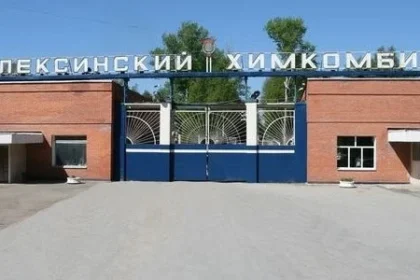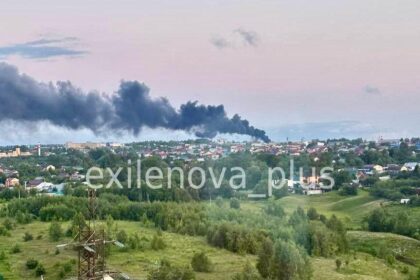**Three Dead, Many Injured in Ukrainian Drone Attacks on Russia**
Last night, a series of drone attacks by Ukraine targeted several regions in Russia, resulting in the deaths of three people. The attacks also left many others injured. According to officials, the strikes were aimed at key industrial targets in the Tula and Nizhny Novgorod regions.
**Tula Region Hit Hard**
In the Tula region, which borders Moscow to its north, two people lost their lives in a drone attack that occurred before midnight on Sunday. Two others were hospitalized with injuries. This was confirmed by Tula Governor Dmitry Milyaev via the Telegram messaging app. The exact target of the attack is not clear.
**Nizhny Novgorod Region Hit**
In the Nizhny Novgorod region, one person died and two others were injured in a Ukrainian drone attack on an industrial zone. According to Gleb Nikitin, the governor of the region, this was a deliberate attempt by Ukraine to disrupt Russian military production.
**Russia Loses Drones, Not Lives**
Despite the successful targeting of key industrial sites, Russia’s air defense units managed to destroy a total of 59 Ukrainian drones overnight. This includes 12 drones that were shot down over the Tula region alone. However, it is worth noting that Moscow only reports on how many drones its units can shoot down, not how many Ukraine launches.
**Moscow in Sights**
Seven drones were reportedly intercepted and destroyed while attempting to reach Russia’s capital, Moscow. This was confirmed by Mayor Sergei Sobyanin. While both sides deny targeting civilians, the reality of thousands of civilian deaths since Russia launched its full-scale war on Ukraine in February 2022 cannot be ignored.
**Commentary**
The recent drone attacks by Ukraine are a stark reminder that this conflict is far from over. Despite efforts to down drones, the Russian military is still facing significant threats from Ukrainian forces. It remains to be seen how these ongoing tensions will unfold and what consequences will arise for both parties involved.
Read More @ www.reuters.com












